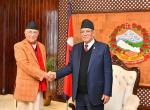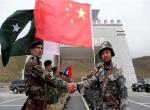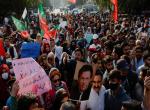Introduction
In its recent report-“Securing the Future of Afghanistan,” the UK House of Commons Defence Select Committee calls for measures to help establish a “peaceful and functioning” Afghanistan. The report, which pays tribute to the service and sacrifices of British troops, focuses on an issue that is engaging most NATO/ ISAF countries at this moment - the planned withdrawal of combat troops at the end of 2014. This is to be achieved supported by the perception that the troops have achieved their security objective, Afghanistan is not being abandoned and if the Afghans get their act together, then promised assistance and aid will continue to flow. To that end the report emphasizes that UK must show the Afghan people that it will abide by its commitment to support them after the drawdown in 2014.
Future of Afghanistan
The report dwells on the transfer of security responsibility to the Afghan National Security Forces(ANSF) and raises concerns regarding the lack of 'enablers' like helicopter support and medical care to support the ANSF. It also examines the progress towards a secure and stable Afghanistan from a regional perspective and seeks to engage with external partners to improve Afghanistan’s future prospects.
There are currently 9,000 British service personnel in Afghanistan, which will fall to 5,200 by the end of 2013. It was observed by the committee that at the end of operations in Afghanistan in 2014 “the best (least) UK should do is to withdraw in good order”. It also calls for the start of an Afghan-led peace process including the Taliban, before the UK and other forces end operations.
In the process of establishing a peaceful and functioning Afghanistan the Committee, besides the start of an Afghan-led peace talks supported by Pakistan, calls for certain positive indicators; one, open and free elections; two, an appropriately trained and equipped ANSF with continuing financial support; three, a strong judicial system which protects the human rights of all Afghans; four, continued economic and development aid in support of the well being and safety of all sections of society; finally, effective measures to tackle corruption, drug production and its trade be put in place.
The Committee added that it had received few inputs from either the British Ministry of Defence or the Foreign and Commonwealth Office regarding their planning for Afghanistan after 2014. Regarding future scenarios following the withdrawal of combat forces from Afghanistan, these varied from those which are overly optimistic to those which see only doom and gloom.”1 The Committee chairman James Arbuthnot said some of the witnesses who gave evidence "thought there was a 50-50 chance of Afghanistan descending into civil war".
UK Defence Secretary Philip Hammond responding to the report said that UK had intervened in Afghanistan primarily to "address the terrorists who were using the chaos in Afghanistan as a base to attack Western interests". The international community sought to remedy the situation to a point where it would be able to withdraw and allow the Afghans to maintain their own security so our security was protected." 2
The Defence Secretary felt that the British achievements in Afghanistan had been underplayed. ISAF/NATO has created the 350,000-strong Afghan ANSF from scratch which is increasingly capable and confident. Eighty per cent of operations at present are led, planned and executed by the Afghans. Increasingly the ISAF forces are in the barracks as a back-up reserve, with the Afghans undertaking combat operations. This is very significant progress.
He said UK would continue to support the development of Afghan forces through mentoring and training at the Afghan National Army Officer's Academy near Kabul. UK has committed £70 million to the international fund to sustain the ANSF after 2014 and £178 million per year of development aid till 2017 to support governance and development in Afghanistan.
Assessment
The events around the period this report was released contradict some of the basic assumptions on which the report bases its recommendations. On 01 April, thirteen missiles were reported to have been fired by the Pakistani army into the Dangam district of eastern Kunar province almost as if indicating that after months of downward slide the Pakistan-Afghan relations are now at their lowest point in last few years. Pakistani cooperation and commitment is crucial to see some of the recommendations of the report come alive.
The second issue is of the potency of the ANSF, which continues to grapple with teething issues. Over 63,000 recruits of the ANSF are quitting every year, or more than a third of the current size of the army, as reported the by British media. British officials admit that current attrition rates, with more than 5,000 soldiers quitting every month, threaten the force’s long-term effectiveness. In northern Badakhshan province, an area with little previous insurgent activity, Taliban forces ambushed a convoy and killed 17 Afghan soldiers sent to reinforce police posts on 07 March. The insurgent attacks in the current spring offensive have driven the rate of Afghan government fatalities to the highest level of the war. The casualty rate of Afghan soldiers and police officers is more than double the rate of a year ago.
Couple of days after the release of the report, almost as if to prove a point, an estimated 200 Taliban fighters overran a small military outpost in the Narai district maintained by soldiers from a battalion of the 201st Military Corps. Reports indicate that 12 or 13 Afghan soldiers were killed by the Taliban. The Narai outpost was manned by what The New York Times called one of the Afghan Army's "highly regarded" combat units- one of a few that have been rated to operate independently without ISAF military advisers. It was one of two such battalions that had been deployed without advisers recently in Kunar Province.3 ANSF is crucial to ISAF plans from the point of view of ensuring stability in final stages of its drawdown.
Some analysts feel there has been an apparent lack of interest by both the Ministry of Defence and the Foreign Office towards Afghanistan’s administration post-2014, hence the lack of inputs to the committee. However, one of the most likely reasons that the UK MoD and the Foreign Office have been restrained about sharing their plans for Afghanistan post-2014 is that it is quite difficult to determine even broad planning possibilities in Afghanistan unless there is progress on the security and political front by bringing the Taliban to the negotiating table.
The drawdown of the British forces has also been an area of concern for the Defence Committee. It felt decision makers were being overly optimistic about the difficulties of safely pulling out British troops as their combat mission ends. They expressed the requirement to have in place an “associated strategic contingency plan to cater for an unexpected breakdown in security within Afghanistan and armed resistance to the UK’s withdrawal”. The Committee’s concern comes from the fate that befell the withdrawing Russian troops in 1988-89 and the lack ability of the ANSF to support the NATO/ISAF drawdown.
Another ‘history-related’ concern of the committee was the manner in which the withdrawal is viewed both at home and in Afghanistan as it would determine whether British involvement in Afghanistan would find its place in history and public memory as a success or a failure. "The view that the public takes, in both Afghanistan and in Britain about the role and outcomes of the NATO mission and UK participation in it, is a critical element in its ultimate success or failure".
It felt that the strategic communication about a force’s mission, its activities and its impact are as important as the combat it undertakes."It is vital that the process is seen as transition and not as a 'withdrawal through fatigue'. We have seen little evidence that the Government's communications strategy is fulfilling its objectives."4
Conclusion
In a nut shell the report says Britain should be proud of its achievements in Afghanistan and after the drawdown is completed, UK will have limited influence over the events in Afghanistan particularly those related to security. It is for the Afghan people themselves to determine their own future. However, the UK and its international partners will show the Afghan people that they will abide by their obligations to continue to support them in their efforts, economically and through cooperation from Afghanistan’s neighbours and regional stakeholders.
Endnotes
- ‘Withdraw in good order and engage in Afghanistan’s future, says Defence Committee’, 10 April 2013. http://www.parliament.uk/business/committees/committees-a-z/commons-select/defence-committee/news/summary-of-afghanistan-report/
- ‘Afghanistan peace deal with Taliban needed, say MPs’, BBC, 10 April 2013. http://www.bbc.co.uk/news/uk-politics-22087122
- Rod Nordland and Azam Ahmed. ‘Taliban Attack Highly Regarded Afghan Army Unit’, The New York Times, April 12, 2013. http://www.nytimes.com/2013/04/13/world/asia/taliban-attacks-afghan-army-unit.html?ref=world&_r=1&
- James Kirkup and Ben Farmer. ‘Britain must avoid 'withdrawal through fatigue' image over Afghan pull-out’, The Telegraph, 10 Apr 2013.http://www.telegraph.co.uk/news/worldnews/asia/afghanistan/9982846/Britain-must-avoid-withdrawal-through-fatigue-image-over-Afghan-pull-out.html
Published Date: 17th May 2013








Post new comment